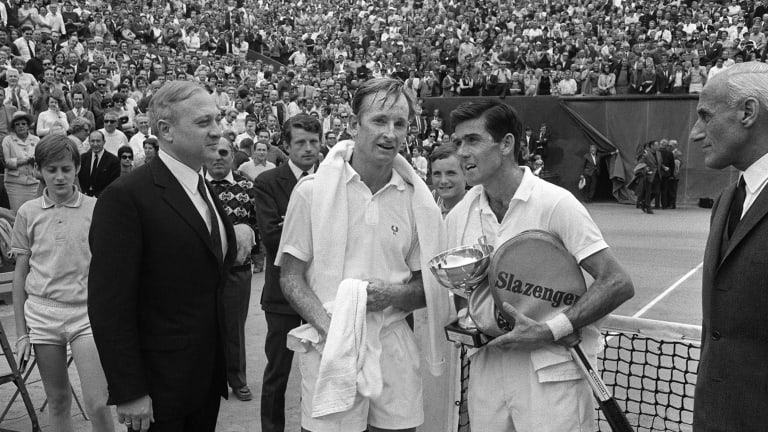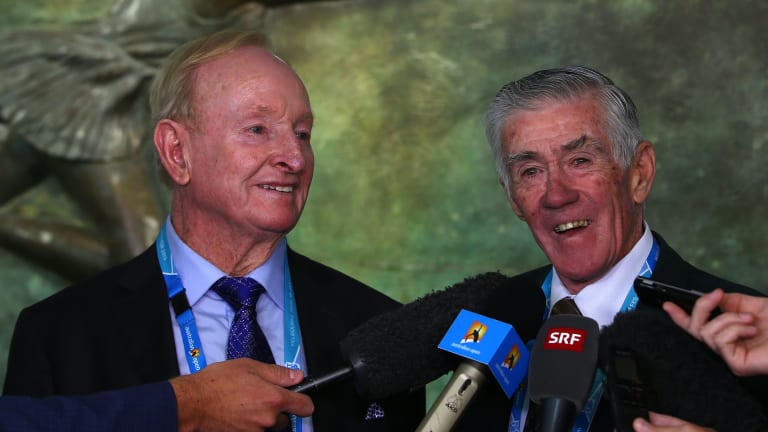Even Rod Laver has one that got away: 1972 WCT Finals loss to Rosewall
By Jul 22, 2020Pick of the Day
Monte-Carlo Betting Preview: Lorenzo Musetti vs. Stefanos Tsitsipas
By Apr 10, 2025ATP Monte Carlo, Monaco
Stefanos Tsitsipas vs. Lorenzo Musetti: Where to Watch, Monte Carlo Preview, Betting Odds
By Apr 10, 2025Lifestyle
Rafael Nadal’s shirt from his career Grand Slam-completing victory in 2010 is available for auction
By Apr 10, 2025ATP Monte Carlo, Monaco
Grigor Dimitrov vs. Alex De Minaur: Where to Watch, Monte Carlo Preview, Betting Odds
By Apr 10, 2025ATP Monte Carlo, Monaco
Carlos Alcaraz vs. Arthur Fils: Where to Watch, Monte Carlo Preview, Betting Odds
By Apr 10, 2025Ranking Reaction
Jannik Sinner is guaranteed to still be ranked No. 1 when he comes back to the tour in Rome
By Apr 10, 2025ATP Monte Carlo, Monaco
The battle of the ball mark: Will we miss that unique piece of clay-court theater?
By Apr 10, 2025Lifestyle
Beep, beep! Elena Rybakina has finally gotten her driver's license
By Apr 10, 2025ATP Monte Carlo, Monaco
Carlos Alcaraz to face in-form Arthur Fils on tough day for seeds at Monte Carlo Masters
By Apr 10, 2025Even Rod Laver has one that got away: 1972 WCT Finals loss to Rosewall
Nearly 50 years later, the Hall of Famer vividly recalls a potential victory that eluded him.
Published Jul 22, 2020
Advertising

Even Rod Laver has one that got away: 1972 WCT Finals loss to Rosewall
© AFP via Getty Images
Advertising

Even Rod Laver has one that got away: 1972 WCT Finals loss to Rosewall
© 2015 Getty Images